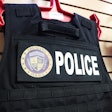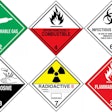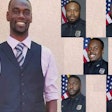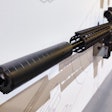There are those we're dying to arrest, but can't; those that we don't want to arrest, but must; and those we're going to arrest and who have it coming.
Then there are those who haven't done anything wrong—at least not that for which they have been accused—yet who nonetheless find themselves facing the same fate as those who have.
Among them are those falsely accused of battery, molestation, and rape. Those so maligned include fathers, husbands, and occasionally some of our own.
How many people have endured the pain of false accusations?
Who knows?
I like to believe that cops are like most people, perhaps even more so, in their desire to see just outcomes in life. It is that innate desire for fairness that finds our imaginations captivated when we do encounter them, be it the fictional likes of the Count of Monte Cristo, or the all too real example of Atlanta bombing hero-cum-pariah Richard Jewell.
I am reminded of this when I consider the Duke Lacrosse rape case, an ongoing serial too convoluted to be fiction, although the "victim's" fabricated story was the wellspring that gave its genesis. Having already damaged the reputation of the Durham Police Department, this miscarriage of justice may additionally impact the city to the tune of $30 million—not to mention all manner of in-house overhauls.
One of the three men who were falsely accused and are currently suing the department said that the ordeal has caused him to become distrustful of the law enforcement community for the rest of his life.
And that depresses me.
Think about that: He's talking about us.
Normally I am one to shudder at such broadstroking of our profession; yet I could hardly blame him.
For while the self-aggrandizing, narcissistic, parasitic prosecutor, Mike Nifong, bore the brunt of the blame, there was no shortage of others who played a hand in this mess. The usual suspects included the news media, community activists, student protestors, militants, and outraged clergy—all of whom brought their own kindling to the bonfire.
But most pathetically, it also included those who were sworn to protect them.
Of the latter, there were investigators determined to shoehorn in a predetermined and politically motivated outcome. They stayed the course through the "suspect only" photo lineup; the willed denial of the victim's inconsistent descriptions of her "attackers"; the discounting of a second exotic dancer's statements that refuted those of the victim; the victim's own vacillating version of events; her history of having made prior allegations against three men; the absence of implicating DNA or corroborating physical injuries; and abdicating control of the investigation to D.A. Nifong. And for all this, they not only went over the line, but over the edge and into a freefall.
What was it that saw so many in the criminal justice system hauling ass lemming-like for that same damning precipice? Why did so many co-sign her B.S.?
Was it a desire to accommodate the alleged victim, a woman possessing the temperate nature of Rosie O'Donnell, the lucidity of Britney Spears, and the credibility of Tawana Brawley?
Was it to keep those above them off their own backs?
Liberal guilt?
Intimidation?
Whatever the reasons, they became co-conspirators in the travesty.
As a result, that miscreant of malicious malfeasance Nifong lost his job, two lead investigators submitted their resignations just this month, and three young men's lives have been forever impacted in a manner that I find no less offensive than the racial scapegoating of the Scottsboro Boys in the thirties. Perhaps, even more so, as 70 years on we're supposed to live in more enlightened times. Today, we're supposed to know better than to judge men and women by the color of their skin.
But you wouldn't know it by watching this three ring circus.
And that's why the criminal justice system needs to extend the bare minimum of respect to those who pass through it by evaluating not only the character of its suspects, but character and veracity of its victims, informants, and witnesses.
Often it starts with you, the patrol officer. As the handling officer, you are often the first line of defense for identifying the true victim. It's a heady responsibility, and if you spend any length of time at all in this profession, I guarantee that sooner or later someone will lie their ass off to your face—and it won't be your "suspect."
The thought of being used as someone else's instrument of revenge is something that should incense any officer. It is something that he or she should be forever vigilant against. But beyond that, officers should recognize that they have a vested interest in being the fact finders they're paid to be. As evinced in this case, the fallout of precipitous arrests are myriad and enduring.
I hope and suspect that there were those officers who refused to be part of the terrible charade and offered their dissent to little avail. At least, they need not consider themselves party to the judicial bum's rush that these three men received. I'd like to hear from these voices of reason.
The people I did reach within the Durham Police Department declined to discuss the matter, citing the ongoing litigation. Messages with the public information officer went unanswered. One officer did admit to being familiar with the litany of investigative shortcomings documented above and did not refute them.
So when you get that call, get all the facts. Take your time. If you get a hinkey feeling about your victim, don't suppress it. Do what it takes for you to sleep well at night and look at yourself in the mirror in the morning.
The buck may not stop with you. But by being as vigilant in your documentation as you are in your investigation, you may have some say as to where the case ends up, be it in the filing tray—or the trash.














